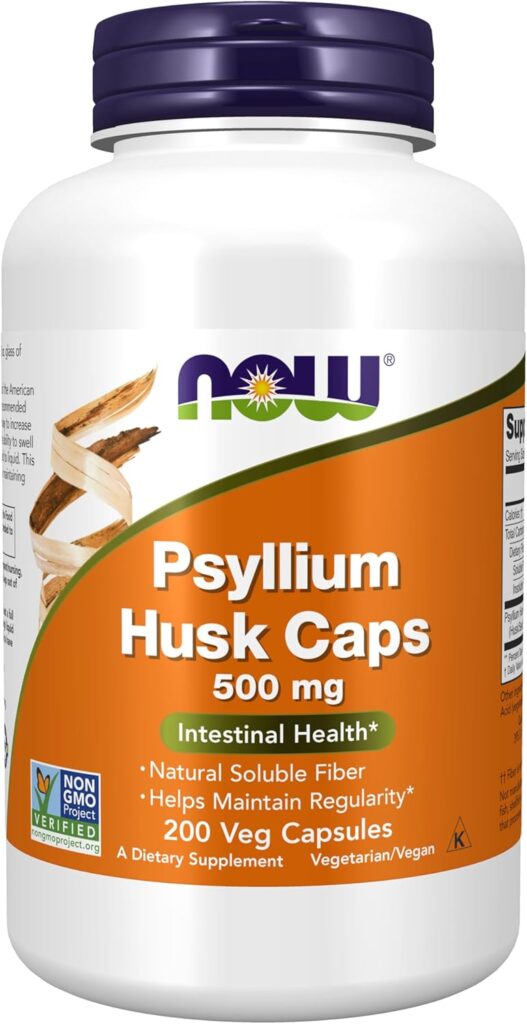
It all began with an endless cycle of fad diets and frustration. I found myself stuck on the proverbial hamster wheel, trying countless meal plans, calorie restriction methods, and exercise routines that seemed promising but ultimately led to disappointment. I thought I was doing everything “right” but nothing seemed to stick. That was until I stumbled upon something that completely shifted my understanding of weight loss: gut health.
I know the term “gut health” might conjure up images of probiotic yogurt commercials, but the truth is, it goes so much deeper than that. This journey into exploring the role of my gut, the bacteria living within it, and how they influenced my weight became one of the most enlightening aspects of my health transformation. And I’m here to share what I’ve learned in hopes it might help you, too.
Understanding Gut Health
To start, let me explain a bit about what gut health actually means. When people refer to gut health, they’re talking about the balance of microorganisms in your digestive system. Your gut is home to trillions of bacteria—some are helpful, and others, not so much. These bacteria form what’s called the “gut microbiome,” a community that plays a crucial role in digestion, immunity, mood, and yes, even weight regulation.
For years, I thought weight loss was just about calories in versus calories out. But science is showing that there’s more at play—specifically, the delicate balance of bacteria in our guts. The microbes we harbor can influence how we metabolize food, store fat, and regulate hunger. And as I discovered, fostering the right kind of balance in my gut turned out to be the missing piece to the puzzle.
The Gut-Weight Loss Connection
The first lightbulb moment for me came when I started reading about how different bacteria have unique roles in the body. Research shows that people who are overweight or obese often have a different balance of gut bacteria compared to those who are lean. Specifically, there tends to be a lower diversity of gut bacteria, which can impact the efficiency of how we process and store food.
The gut microbiome also impacts inflammation levels. When there’s an imbalance—a condition called dysbiosis—it can lead to chronic low-grade inflammation in the body, which disrupts normal metabolism and insulin sensitivity. No wonder I was feeling sluggish and bloated no matter how many crunches I did!
Introducing Probiotics and Prebiotics
One of the first changes I made was to start including more probiotics and prebiotics in my diet. Probiotics are the “good” bacteria, while prebiotics are the fibers that feed those bacteria. Together, they help create a more diverse and balanced gut environment.
I started by adding probiotic supplements, such as Garden of Life Dr. Formulated Probiotics (available on Amazon). These capsules contain a variety of strains, which is crucial since diversity is key for gut health. I also opted for probiotic-rich foods like kefir, sauerkraut, and yogurt with live cultures. Not all probiotics work the same, and variety helped ensure that I was getting the broad spectrum I needed.
But probiotics alone aren’t enough; they need food to thrive, which is where prebiotics come in. Foods like garlic, onions, bananas, and oats became staples in my diet. For a boost, I also used NOW Supplements, Prebiotic Fiber powder (Psyllium Husk) – also from Amazon, mixing it into smoothies or oatmeal. Prebiotics can be tricky since they are essentially fibers, but adding them consistently really seemed to help my gut flourish.

Cutting Out the Harmful Stuff
Another major shift in my gut health came from taking a hard look at what I was eating that could be harming my microbiome. I found that processed foods, added sugars, and artificial sweeteners had a way of wreaking havoc on my gut health. It turns out, sugar can feed the “bad” bacteria, tipping the balance away from those helpful microbes.
I gradually started removing heavily processed snacks from my diet and opting for whole, natural foods. This was a tough transition at first. I won’t pretend that giving up sugary treats was easy, but over time, the more I nurtured my gut, the fewer cravings I seemed to have for these types of foods. It was as if I was finally giving my body what it really needed, and it responded in kind.
The Impact on My Weight Loss Journey
To my amazement, I noticed a significant shift in my weight as my gut health improved. I wasn’t just losing weight—I was feeling healthier overall. My energy levels were up, my digestion had improved, and I found myself more in tune with my hunger and satiety signals. It wasn’t magic; it was simply my body working better because it was in balance.
Weight loss seemed to come as a natural byproduct of treating my body well. I began understanding the cues my body was sending me. I no longer felt constantly hungry, and I started recognizing when I was actually full—something I had struggled with for years.
Understanding Cravings and Hunger
One of the most surprising discoveries I made was that gut health played a significant role in my cravings and appetite. A gut in dysbiosis can send confusing hunger signals to the brain, which can make you crave foods that are often bad for you—particularly sugar. In my case, focusing on my gut helped me naturally curb my appetite.
As I nourished my microbiome, I felt fewer instances of those intense sugar cravings that used to derail my diet plans. Studies have shown that a healthy gut produces hormones like leptin and ghrelin, which regulate appetite and signal fullness to the brain. I experienced this firsthand—the changes weren’t immediate, but over a couple of months, I felt a tangible difference.
Supplements That Helped My Gut
In addition to probiotics and prebiotics, I also started experimenting with some other gut-supporting products. One supplement that made a difference for me was Nature’s Way Premium Activated Charcoal (Amazon). While it’s not a daily supplement, I found that activated charcoal helped alleviate some of the gas and bloating that I experienced, especially early on as my gut was adjusting to my new diet. It works by binding to toxins and helping the body eliminate them.
Another supplement that I found helpful was Digestive Enzymes. I used the Zenwise Digestive Enzymes with Prebiotics & Probiotics (yes, on Amazon). These enzymes helped break down the food I was eating, making it easier for my body to absorb nutrients and reducing the uncomfortable feeling of heaviness after meals. In many ways, they helped bridge the gap as my gut was healing.
Lifestyle Changes: Moving Beyond Diet
Of course, gut health isn’t only influenced by what you eat. I also started making some lifestyle changes to support a healthier microbiome. One thing I had to work on was stress management. Chronic stress can significantly impact gut health, leading to increased inflammation and worsening that imbalance of bacteria. I began incorporating meditation and light yoga into my weekly routine, both of which helped me keep my stress levels in check.
Another lifestyle factor that had a huge impact was sleep. I hadn’t realized how much my poor sleep habits were affecting my gut. Studies have shown that lack of sleep can alter the gut microbiome, negatively influencing metabolism. I made an effort to get at least 7-8 hours of sleep each night, and I truly felt the difference in how my body functioned and in my energy levels during the day.
The Lasting Effects of a Healthier Gut
As the months went by, I realized that focusing on gut health not only helped me lose weight but also provided lasting benefits that went beyond the number on the scale. My skin was clearer, my mood was more stable, and even my immune system seemed stronger—I wasn’t getting those annoying seasonal colds anymore.
This journey taught me that weight loss is not just about discipline or willpower; it’s about creating an internal environment that supports your efforts. I had spent so much time fighting against my body—counting calories, forcing myself into punishing workouts, and feeling guilty about every indulgence. When I shifted my focus to my gut health, everything changed. It felt like my body and I were finally on the same team.
Tips for Improving Gut Health for Weight Loss
If you’re interested in improving your gut health to support your weight loss journey, here are some tips from what I’ve learned:
- Add Probiotics and Prebiotics: Incorporate foods like kefir, yogurt, sauerkraut, garlic, onions, and bananas into your diet. Consider a good-quality supplement like Garden of Life Dr. Formulated Probiotics or NOW Supplements, Prebiotic Fiber (Pysllium Husk).
- Reduce Processed Foods and Sugar: These feed the harmful bacteria and cause imbalances. Stick to whole, natural foods whenever possible.
- Consider Digestive Enzymes and Charcoal: Supplements like Zenwise Digestive Enzymes and Nature’s Way Premium Activated Charcoal can help ease digestion and make the transition smoother for your gut.
- Manage Stress and Sleep: Practice stress-reducing activities like meditation and ensure you get enough sleep. Both have profound effects on gut health.
- Stay Consistent: Changes in the gut microbiome don’t happen overnight. Stick with your new habits and give your body time to adjust.
Final Thoughts
The role of gut health in weight loss is still an evolving area of science, but my own experience is a testament to how important it really is. By nurturing my gut, I was able to improve not only my weight but my overall well-being. It was about creating harmony in my body, instead of punishing it for what I thought were shortcomings.
If you’ve been struggling on your weight loss journey like I had, maybe it’s time to look inward—all the way to your gut. With the right balance of good bacteria, you may just find that your body finally starts working with you, not against you.